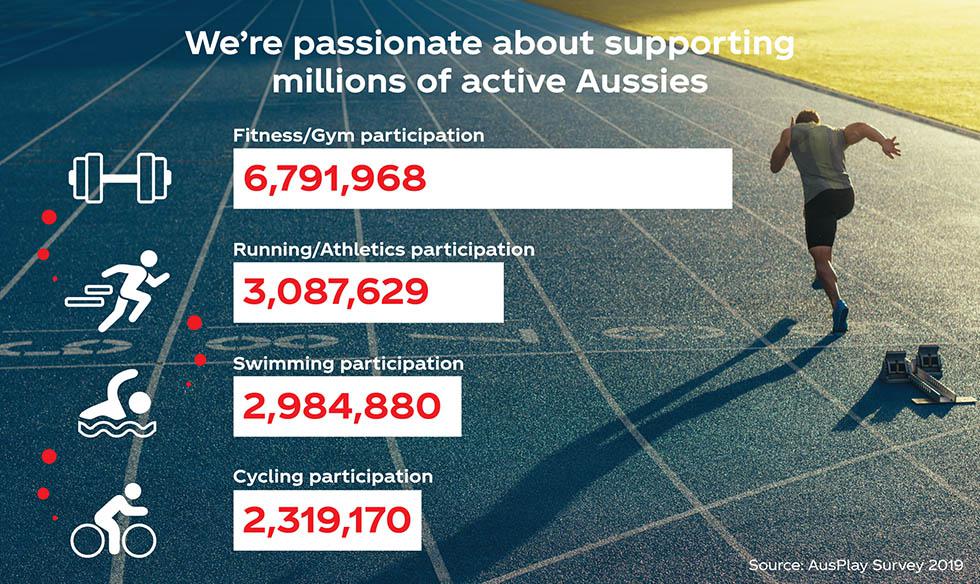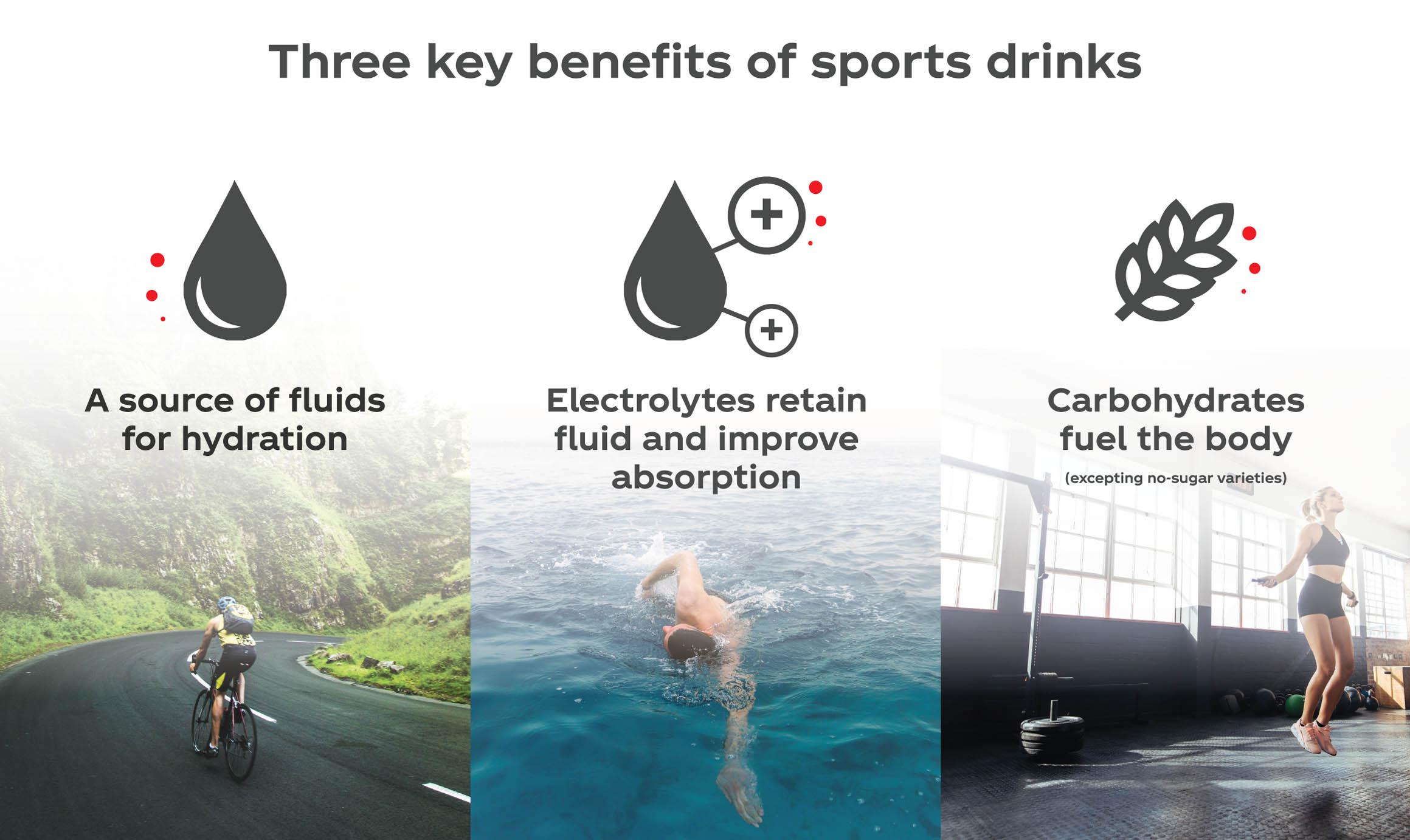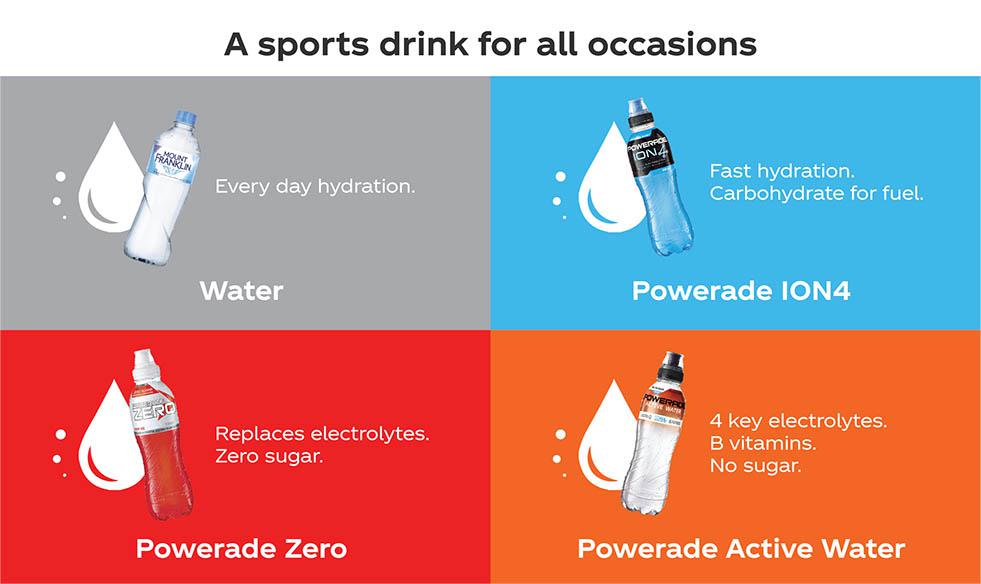
The Science Behind Sports Drinks
14-11-2019
How often do you head to the gym or head out for a morning run to get your fitness up? According to Australia’s AusPlay Survey almost seven million of us are getting our workouts at the gym. More than three million run or do athletics. If you swim, you’re joining close to three million Australians.
No matter your choice of exercise, Coca‑Cola Australia is passionate about making drinks for every occasion. This includes supporting millions of active Aussies who sometimes need a little extra when it comes to hydration and fuel through our sports drinks.

What sports drinks offer
Our sports drinks are designed to serve a specific purpose. They provide additional levels of electrolytes to support hydration as well as energy for those training sessions when water isn’t enough.
Bobbie Crothers is an accredited sports dietitian and the scientific and regulatory affairs manager, Sparkling and Sports at Coca‑Cola Australia. She oversees the design process of our sports drinks to ensure they strike the right balance between nutrition, function and taste.
“Sports drinks are functional beverages and provide three key benefits. First, they are a source of fluids for hydration. Second, they provide electrolytes that then help retain fluids and support fluid absorption within the body. Third, except for no-sugar varieties, they contain carbohydrates to fuel the body. So, they not only provide energy to fuel the brain and muscles during intense, sustained exercise, but also support your hydration needs to help you get the most out of your training,” Bobbie said.

Bobbie says the creation of a sports drink, specifically electrolyte drinks, is guided by regulations set by the Food Standards Code, Australia and New Zealand Food Standards Code.
“Electrolyte drinks, which are a type of sports drink, are actually defined and regulated under the Code. This means they have to include a specific amount of sugar or carbohydrate and electrolytes.”
“Making sure our sports drinks follow those regulations and provide functionality is really important because it’s what sets them apart from other drinks. We also work with one of the scientists at the New South Wales Institute of Sport in the development of our sports drinks to ensure we are keeping the athletes needs top of mind,” she said.
When to use sports drinks
Plain water always plays a role when exercising, and no sports drink should be used to replace water. Sports drinks are useful for those undertaking high intensity physical activity or prolonged periods of exercise.
“Water is always key for any kind of exercise. But for those undertaking particularly intense or long exercise activities, sports drinks like Powerade ION4 can help support hydration and help you get the most from your training,” Bobbie said.
“For example, if you’re competing in endurance events like a marathon or multiple sporting events in consecutive days, you’ll need to prioritise refuelling and rehydrating to help keep you going. Sports drinks are really useful for situations like this, especially due to their composition and convenience,” Bobbie added.
Who are sports drinks for?
Our sports drinks are designed to support active Australian adults who need a pick-up during or straight after a big workout. Other age groups can often receive all the necessary hydration and nutrients they need through a balanced diet and drinking water.
“It always comes down to the amount of exercise, intensity and conditions of the activity. Sports drinks are primarily intended for those participating in high intensity activities and longer bouts of exercise to either refuel or recover quickly,” she said.
“When it comes to children, they don’t need sports drinks. Some adolescents who are involved in competitive sports may benefit from sports drinks, particularly electrolyte drinks, but these should only be consumed with the advice of a professional. Adolescents who are not taking part in vigorous exercise do not need to consume sports drinks,” Bobbie added.
Providing options for your needs
We know people want drinks that provide them with great taste and functional benefits. That’s why we have invested in expanding our sports drink portfolio with no-sugar options like Powerade Active Water launched earlier this year.
“We’ve been listening to consumers, and we know they want something that tastes great and keeps them hydrated for their sport and exercise activities, even without sugar. We’ve worked hard to create no sugar options that provide electrolytes to support hydration, but without the additional energy supply from carbohydrate,” Bobbie said.
“My focus has always been the health and wellness of Australians and I’m proud we are providing functional drinks, so people are supported in their active and healthy lifestyles.”
